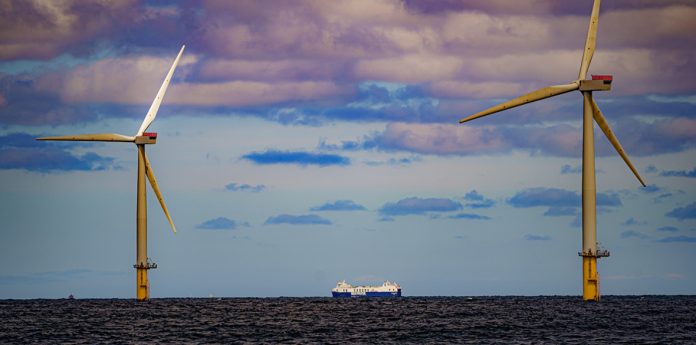A publicly-owned energy company could see a £3 return for every £1 of investment – generating “a mammoth £140bn” for the economy by 2040, according to TUC analysis.
The TUC says a national energy company could lower household bills, make the country richer, create good jobs and cut carbon emissions.
The new analysis reveals the UK could be £140bn better off by 2040 – the equivalent of £5,000 per household for the public purse – if the next government invests £40bn by 2030 in a publicly-owned clean power company.
The TUC says a public energy champion will create a fairer energy system, which can support good jobs and help speed up the path to net zero.
Labour has committed to launching Great British Energy, a publicly-owned national energy champion which it says will end energy dependence on international energy companies like EDF and Norway’s Statkraft.
The TUC says UK households are feeding the profits of foreign firms and subsidising cheaper bills abroad.
A publicly-owned clean power company could see the UK reap the rewards – not only making Britain richer but keeping bills down, according to the union body.
The Norwegian government earned $392bn from North Sea oil in the last 40 years by investing in publicly owned Statoil and having a public stake in other oil projects.
The TUC says the UK could have done the same but instead privatised its oil fields, putting corporate profits over the public purse.
The government spent £69bn on energy support schemes, helping drive up inflation when fuel costs spiralled in 2022. TUC analysis shows this could have been avoided, if the UK already had a public energy champion.
The TUC says the government could invest a significantly smaller amount over five years to reap the rewards and lower bills for the long term.
While energy bills for British households rose by 54% last year, in France household energy bills rose by just 4%.
That is because publicly-owned EDF – which also operates in the UK – was instructed by the French government to cut profits and keep prices down.
The TUC says that with a public energy company the UK would be able to take a similar approach.
A publicly-owned energy company could help dramatically expand the UK’s supply of clean power – such as offshore wind, tidal, and nuclear – accelerating the path to net zero.
The TUC says it should follow examples from other countries such as Norway, Sweden, France and Denmark, where strong recognised unions and worker representatives on company boards help to ensure good, fairly-paid union jobs.
The union body says that a public clean power champion could boost domestic investment, make the UK a global leader in zero carbon technology, and make the country energy independent.
And that the company should be democratically accountable to the public like those in Europe.
TUC General Secretary Paul Nowak said:
“Publicly-owned energy companies work. Across Europe they are lowering household bills and delivering good jobs.
“But the UK is feeding foreign firms’ profits and subsidising cheaper bills abroad, while British households struggle to heat their homes and pay their bills.
“It’s common sense – those who invest in the future end up better off. A British public energy champion – at the right scale – could create good jobs, speed up the path to net zero and make everyone better-off by a mammoth £140bn.
“The UK is at a crossroads – we can continue to allow foreign firms to rip off British households or we can invest in publicly-owned clean power. That’s the best way to decarbonise the UK economy and safeguard people’s jobs and livelihoods.”







